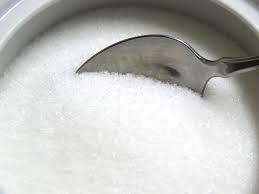Recently I was talking with my brother-in-law, a fit and healthy type 1 diabetic, and he was bemoaning the fact that it was getting harder to find sufficiently sugary drinks to have on standby in case of a hypo. He lives in the UK, which like a handful of cities in the US has a tax on sodas, and the resulting reformulation of these beverages has had some unintended consequences – not just for diabetics, but also for those with PKU who are now finding it harder to avoid the phenylalanine-containing sweetener, aspartame.
I mention this, not as a lead into a critique of the sugar tax – that’s a whole other debate – but simply to illustrate one aspect of the all-pervading trend to make sugar the latest bogey man of the nutrition world.
It’s human nature to want someone or something to blame for human ills, but sugar has had the book thrown at it big time – it’s labeled as toxic, addictive and a metabolic poison driving us all to an early grave.
The truth, of course, is that sugar is just sugar, neither good nor bad, but simply another dietary component that can be consumed in moderation without guilt or worry.
The scare statistics that just aren’t true
Conspiracy theorists suggest that Big Sugar has been bribing scientist and governments, giving a free pass to sugar, since the days of Ancel Keyes (the researcher who first suggested that saturated fat was linked with heart disease). Their hypothesis goes that this has led to us eating more sugar in place of fat, which in turn is responsible for the huge uptick in obesity since the 1980s.
The problem with this argument is that it falls apart when you examine more closely how sugar intakes correlate with obesity or doesn’t, which is more usually the case (in all of this, it’s important to remember, that correlation is far from causation any way).
In America the sugar/obesity correlation did hold good in the two decades leading up to 2000, with obesity levels approximately doubling alongside an increase in added sugars of around 30%. However, since the turn of the 21st century, consumption of added sugars has been showing a steady downward trend, during which obesity has still continue to increase, though not as rapidly.
In Australia the correlation between sugar and obesity is inverse: intake of added sugars and sugar-sweetened beverages has fallen as the nation has got fatter. And in the UK it’s a similar story – while obesity rates have risen, government statistics on food and drink purchases suggest total sugars (natural and added) have actually fallen by 16.6% per capita since 2001.
Sugar isn’t crack cocaine
Those stories equating sugar with hard drugs are obviously nonsense too.
Some people do have compulsive eating behaviors that can lead them to overeat certain foods, despite knowing the risks to their health. But a psychological compulsion to consume cake is a very different thing from suggesting sugar is an addictive drug.
Researchers involved in the NeuroFAST consortium, which is an EU-funded project studying the neurobiology of eating behaviors, say there is no evidence of people being addicted to the specific chemical substances (like sugar) in foods, and that the brain does not respond to nutrients in the same way as drugs like heroin or cocaine.
You can eat some sugar and still be perfectly healthy
Foods with sugar in aren’t always just “empty calories” – flavored yogurts, fortified whole-grain breakfast cereal and chocolate milk are all decent sources of nutrition, and a small glass of orange juice provides meaningful amounts of vitamin C, folate and potassium. One study suggests children’s diets start to show reduced nutritional quality above 13% of energy from sugar, but that a diet that contains 10% added sugars can be perfectly adequate.
Demonizing sugar is "judgy" and harmful
“Sugar-free” diets (which are never actually sugar-free) take time, money and mental resources, and are usually evangelically embarked upon by those of higher socioeconomic status who may look down on the rest of us who enjoy a dessert or allow their kids the occasional candy.
But given the extreme restriction of anything in the diet is one of the hallmarks of disordered eating, I’d suggest it’s actually the moderate sugar consumer who has a healthier relationship with food.
Moreover, reductionist arguments around single nutrients overlook the basic fact that we eat food, not nutrients. Health and wellbeing comes from a diet that offers both sufficient nutrients and emotional satisfaction.
It’s true: we do eat too much sugar!
Even though intakes have been falling many people do still eat too much sugar, which is an extremely palatable source of (potentially excess) calories, and a cause of tooth decay. According to the Centers for Disease Control and Prevention, Americans 20 years and older, consumed about 13% of total daily calories from added sugars in 2005–2010, compared with a recommended intake of no more than 10%. Between 2005-2008, boys and girls aged 2-19 got 16% of their calories from sugars – 60% more than recommended.
So there is a long way to go, but the trend is in the right direction.
A sensible intake
Based on current recommendations, the average adult can eat up to 200 calories (12.5 teaspoons) a day in added sugar. That’s the goal, if any, that should be being pushed, rather than a zero tolerance approach to sugar, which is both unnecessary and unattainable.
For most of us that may mean ditching the sodas that are still full sugar, but leaves plenty enough sweetness for a diet that isn’t all deprivation.




